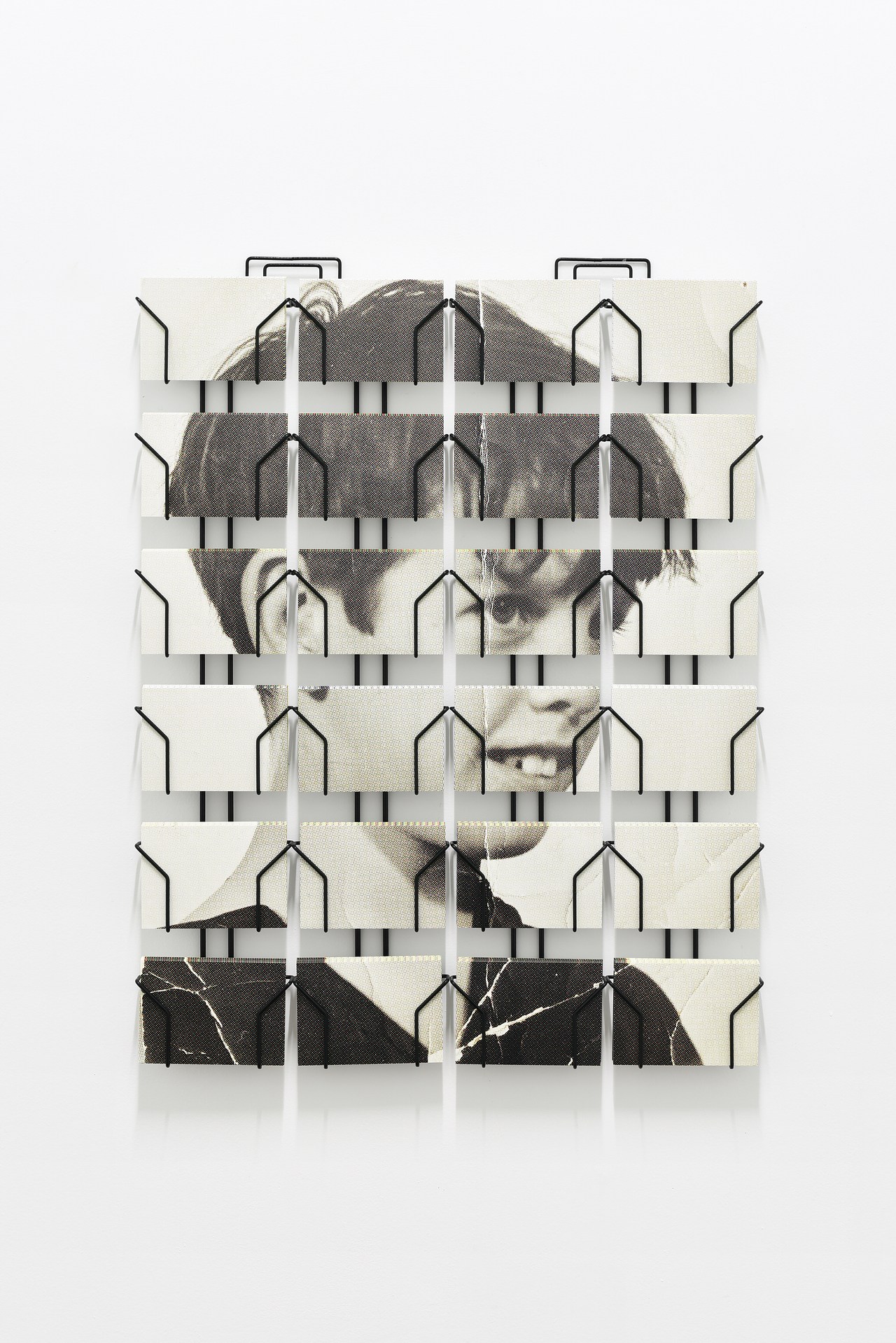Work n. 335: THINGS
- Installation (Installation)
75,7 x 16,5 cm
Martin Creed
Martin Creed is a sculptor, filmmaker, performer and installation artist. Working within a minimal or conceptual mode, most of his artworks, objects, statements, suggestions or performances are titled “Work” and numbered. He wittily subverts the definitions of art and often uses mundane modest materials such as Blu-Tack, balloons, tape, piles of paper. In 1993, Work No. 81 consisted of a one-inch cube of masking tape in the middle of every wall in a London firm and since 1998 Work No. 200 proposes “the air in a given space” through filling it with balloons. Yet any anti-materialism is occasionally counteracted like in the marble staircase realized for the city of Edinburgh or the bronze sculptures. Creed is constantly reappraising things and nothings and all incumbent relations. During 5 months in 2008, Work No. 280 London runners sprinting one by one through the Duveen Galleries in Tate Britain. Martin Creed was born in Wakefield, UK, 1968. He lives and works in London, UK and Alicudi, Italy.
Colors:
Other related works, blended automatically

© » KADIST
Martin Creed
2003This photograph of Martin Creed himself was used as the invitation card for a fundraising auction of works on paper at Christie’s South Kensington in support of Camden Arts Centre’s first year in a refurbished building in 2005...

© » KADIST
Andrew Grassie
2009In 2008, Grassie was invited by the Whitechapel Gallery to document the transformation of some of its spaces...

© » KADIST
Ian Breakwell
2008“BC/AD” (Before Cancer, After Diagnoses) is a video of photographs of the artist’s face dating from early childhood to the month before he died, accompanied by the last diary entries he wrote from April 2004 to July 2005 (entitled “50 Reasons for Getting Out of Bed”), from the period from when he lost his voice, thinking he had laryngitis, through the moment he was diagnosed with lung cancer and the subsequent treatment that was ultimately, ineffective...

© » KADIST
Keith Tyson
The work of Keith Tyson is concerned with an interest in generative systems, and embraces the complexity and interconnectedness of existence...

© » KADIST
Paul McCarthy
2008Memory Mistake of the Eldridge Cleaver Pants was created for the show Paul McCarthy’s Low Life Slow Life Part 1 , held at California College of the Arts’s Wattis Institute in 2008 and curated by McCarthy himself...

© » KADIST
Hans-Peter Feldmann
The types of objects Feldmann is interested in collecting into serial photographic grids or artist’s books are often also found in three dimensional installations...

© » KADIST
Ryan Gander
2012Epiphany…learnt through hardship is composed of a bronze sculpture depicting the model of the little dancer of Degas, in the pose of a female nude photographed by Edward Weston (Nude, 1936) accompanied by a blue cube...

© » KADIST
Anthony McCall
1974This score is a graphic record of the detailed choreography of one of Anthony McCall’s Landscape for Fire performances...

© » KADIST
Hans-Peter Feldmann
The types of objects Feldmann is interested in collecting into serial photographic grids or artist’s books are often also found in three dimensional installations...

© » KADIST
Cerith Wyn Evans
2008Untitled (Perfect Lovers + 1) by Cerith Wyn Evans takes as its starting point Felix Gonzales-Torres’s seminal work Untitled (Perfect Lovers) , in which two clocks were synchronized and left to run without interference, the implication being that one would stop before the other...

© » KADIST
Simon Starling
2007Invited in 2007 to the Museum Folkwang in Essen (Germany), Simon Starling questioned its history: known for its collections and particularly for its early engagement in favor of modern art (including the acquisition and exhibition of works by Cézanne, Gauguin, Van Gogh, Matisse), then destroyed during the Second World War, the museum was pillaged for its masterpieces of ‘degenerate art’ by the nazis...

© » KADIST
Paul McCarthy
1983McCarthy’s Mother Pig performance at Shushi Gallery in 1983 was the first time he used a set, a practice which came to characterize his later works...

© » KADIST
Rosalind Nashashibi
2019Rosalind Nashashibi’s paintings incorporate motifs drawn from her day-to-day environment, often reworked with multiple variations...







